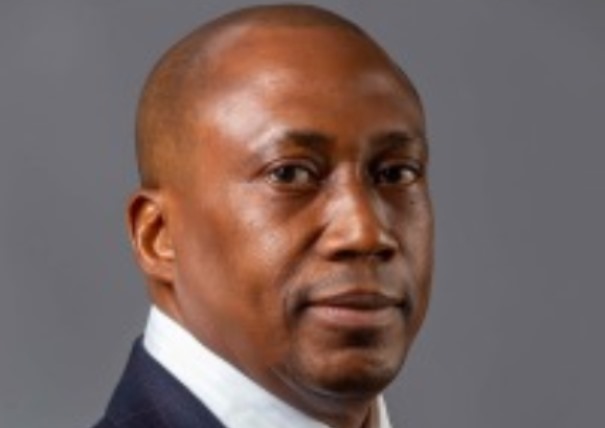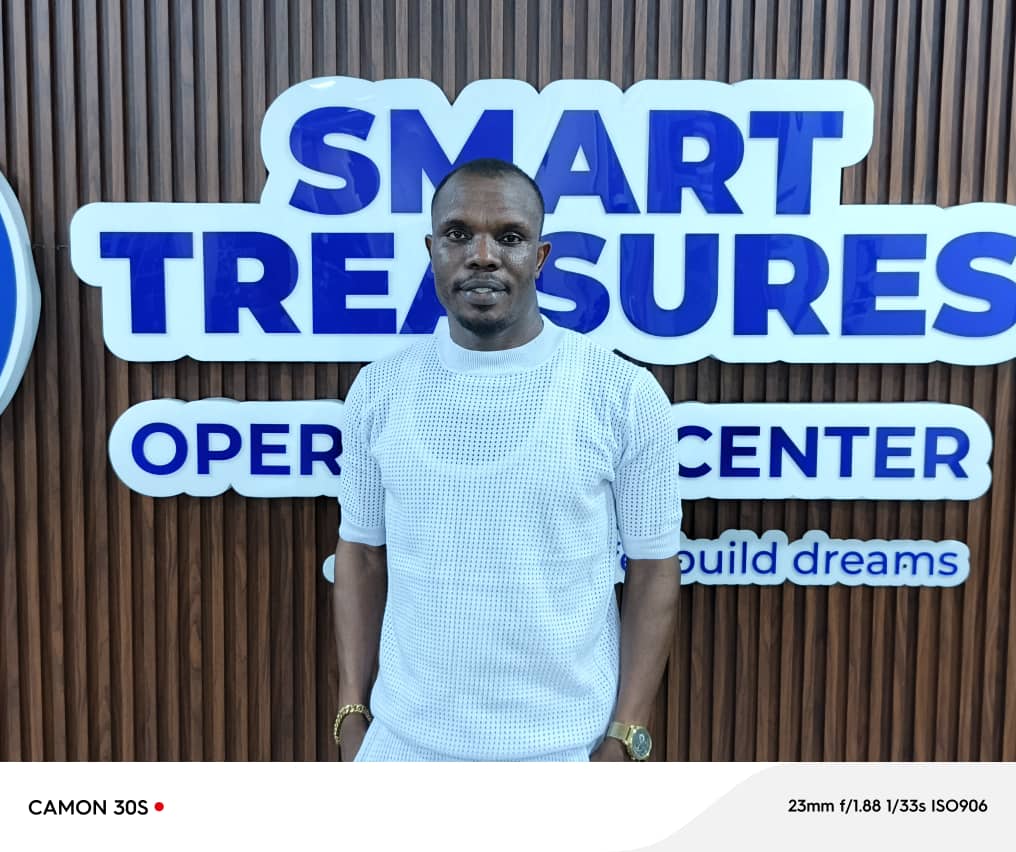Telecom
Strong Corporate Governance, Ethics are at the Heart of MainOne’s Success – Abimbola

In this interview, MainOne’s Chief Financial Officer, Solanke Abimbola discusses the company’s success over the past decade, expansion plans and projections for 2021 while noting that adherence to corporate governance principles and ethics have been key to the company.

MainOne celebrated its 10 anniversary this year, and the company has been recognized for the leadership role it has played in the expansion of Internet access in Nigeria. What are your projections for the ICT industry and MainOne in 2021?
We are pleased that for a company that is only ten years in operation, we have had such impact on Internet access across the West African region. In 2021, we anticipate that more people will migrate online, businesses will adopt cloud-based solutions to improve operational efficiency and data consumption per capita will increase, resulting in the growth of infrastructure requirements.
To meet the increase in demand across the various market segments, we are expanding our terrestrial fiber footprint across the region and we are making additional data center investments including the expansion of our MDXi facility in Lekki, Lagos, and construction of a new data center facility in Appolonia City, Accra Ghana which will be ready for service in the first quarter of 2021. In addition, we expect to continue to see increased growth and investments in the start-up and innovation ecosystem which are driving locally relevant content and applications.
One of the factors that has distinguished MainOne over the years is the kind of products it brings to the market. What are the recent products you have developed, and what philosophy underlies product development at MainOne?
Our strategy remains enabling businesses and retail ISPs in the West African region with broadband infrastructure solutions to serve their end users and customers. This is built on the significant investments we have made in building out world class infrastructure across the West African region, whether via our Connectivity, Colocation, Cloud or Managed services.
We are a company of many firsts and most recently we announced the launch of the first locally available Microsoft Azure Peering Service in West Africa. This service provides enterprises using Microsoft Cloud services with a secure high-performance experience relative to what is currently available in the market.
What should we expect from MainOne with your new investments in data centers in Nigeria and Ghana?
We want to continue to consolidate our leadership position in the data center space across West Africa. In addition to our existing facilities, the new facilities will also be carrier neutral secure facilities which will allow customers the capacity and flexibility to adapt to market changes especially during these challenging times of a Pandemic and recession.
The data centers provide the highest quality of services to allow our colocated customers run their businesses online with 24X7 operation of a data center. They cater to the increasing demand for colocation and interconnection services we are experiencing from multinationals and local businesses seeking shared services facilities for their ICT resources in world class facilities.
The success of MainOne in the last decade is predicated on its Corporate Governance stance. What is your position on the Accounting Separation Framework (ASF) directive issued by the NCC this year?
MainOne has built a strong reputation of good Corporate Governance and take pride in our compliance practices. We have worked with our regulator’s directives on Corporate Governance and hold ourselves out as a role model and advocate for Nigerian companies in our industry. We think the ASF initiative by the NCC is laudable and long overdue to enhance fair competition in Nigeria’s telecom industry but only if the guidelines are transparent, objectively applied, and implemented.
Have you had issues with reporting your financials in the past, and how have your stakeholders responded to issue of disclosure?
MainOne is a private company but we have an open record of compliance with all our statutory filing obligations since inception with the various relevant agencies including Federal and State Tax agencies, the Corporate Affairs Commission, NCC and also the FRC among others. We have had no issues with reporting our financial statements in the past and we have consistently disclosed information to both shareholders and regulators when required. Of course, as a private company we do not publish our financial information in the public domain.
MainOne is administered from its headquarters (in Lagos), but the company is not solely a Nigerian company. How are the component units administered?
MainOne is a multi-national company, with our Group holding company registered in Mauritius. The group includes subsidiary companies in the various countries in which we operate including Nigeria, Ghana, Ivory Coast and Portugal. Our Group operational headquarters is based in Lagos Nigeria and the company is also majority owned by Nigerian investors. We are proud to be a Nigerian owned multi-national company.
What is your stance with respect to regulations, policies and corporate governance in the countries where you operate?
MainOne conducts its business in an ethical manner and one of our core values is integrity. Our business is focused on doing well and doing good as Africans for Africa in accordance with applicable laws, rules, and regulations in countries in which we operate. Obeying the law, both in letter and in spirit, and ensuring regulatory compliance is a critical performance measure for the entire company and an area in which we have performed well.
We have invested significantly in regulatory and compliance frameworks and ensuring that we adopt international best practices in meeting all compliance requirements.
What are your expansion plans for 2021? Any plans for Cameroon? Any challenges on the road there?
In 2021, we plan to explore further opportunities to expand in Francophone West Africa e.g. Niger and Mali, while we continue to drive plans to further expand in our existing countries i.e. Nigeria (Lagos), Ghana and Cote D’Ivoire.
In Burkina Faso, we have partnered with the World Bank to provide bulk connectivity services to a consortium of operators through the PAV – Burkina Cooperative.
With regards to Cameroon, we have extended our submarine cable to Kribi and partnered with Cameroon Telecommunications Corporation (CAMTEL) to accelerate broadband access and expedite penetration in that country and into neighboring Central African countries.
In the past, issues with taxation and Right-of-Way clearances encumbered broadband deployment, especially in Nigeria. Have they all been resolved? What has changed in the last half decade?
Major improvements have been made in the region especially in the last couple of years with regards to Right of Way challenges. However, there are still some lingering issues. Early this year, Ekiti and Kaduna State governments reduced the cost of Right of Way charges and several other states followed suit.
We believe these moves will help accelerate the deployment of fast and efficient infrastructure in these states though these conditions are not sufficient for the level of investment required.
Challenges remain in terms of infrastructure sharing arrangements and also the need for policy consistency over time that will encourage companies to make these long-term investments. As soon as we tackle these issues effectively, we will be able to realize our vision to diversify from oil and create a digital economy.
Tell us about the developmental impact of your services. What have you seen change in the lives of people and organisations as a result of your services?
Our biggest achievement to date is building the pioneering international backbone that reduced the cost of connecting our region to the Internet by orders of magnitude thus enabling access for our citizens.
We have provided wholesale Internet services to over 10 West African countries and Internet penetration in our region has grown from less than 10% to approximately 40% today.
Today, we have 6 cables landing in Nigeria and the country is ranked 7th globally in terms of Internet population. In addition, we have played a major role in enabling the start-up ecosystem in Nigeria which is now ranked #1 in sub-Saharan Africa and which has relied on the critical technologies we have deployed to drive their business models.
Telecom
MTN, Lynk Global Make Africa’s First Satellite-to-Mobile Call

MTN South Africa, in partnership with Lynk Global, has successfully conducted Africa’s first satellite-to-mobile phone call touted as a groundbreaking development.

This historic trial, conducted in Vryburg, North West province, marks a major step toward bridging connectivity gaps in underserved and rural regions across the continent.
The test involved making a voice call using a standard smartphone connected via a low-Earth orbit (LEO) satellite.
This innovative approach eliminates the need for traditional network infrastructure, providing a viable solution for remote areas with limited or no mobile coverage.
According to Charles Molapisi, CEO of MTN South Africa, this initiative aligns with the company’s broader strategy to extend network coverage to hard-to-reach areas.
“This achievement demonstrates our commitment to leveraging cutting-edge technology to ensure connectivity for all, regardless of location,” Molapisi stated.
The trial also assessed SMS capabilities over the LEO satellite connection, proving the technology’s potential for widespread application.
With successful implementation, satellite-to-mobile communication could revolutionise telecommunications in Africa, enabling digital inclusion and economic opportunities in regions previously disconnected from mainstream networks.
This milestone underscores the growing role of satellite technology in Africa’s telecommunications landscape.
By integrating satellite solutions with existing mobile networks, MTN and Lynk Global aim to provide seamless connectivity that overcomes traditional infrastructure challenges.
Telecom
Smart Treasure Investment Team’s Initiatives Eradicate Poverty, Says Aminu

Samson Aminu, also known as Smile, has described the Smart Treasure Investment Team (ST Team) as a transformative force that has empowered its members and significantly contributed to poverty eradication.

Samson Aminu
Aminu, a VIP 9 member of the team, shared his experiences on Friday during the official car presentation ceremony held at the regional office in Lagos. Having recently received a Lexus RX350 and an international vacation from the team, Aminu recounted how the organization has positively changed his life.
“The Smart Treasure Investment Team has really imparted my life positively and changed my status from zero to hero,” he said.
He revealed that his first earnings through the team allowed him to relocate to a new apartment and acquire gadgets. “I’ve purchased various items for myself and my family, and established an operational center in Ilorin,” he added.
The ST Team, according to Aminu, aligns its activities with the United Nations’ 16 Sustainable Development Goals (SDGs), which include youth empowerment, poverty eradication, support for education in rural areas, and community service.
“The ST Team has come to eradicate poverty in Africa and across the globe. We are teaching people how to catch fish by themselves and making them financially stable,” Aminu explained.
He highlighted the organization’s initiatives such as providing allowances to civil servants, feeding the elderly, orphans, and widows, and investing in agriculture to sustain local communities.
“If the ST Team lasts long for another three years, the government would be grateful to this project as it would bring peace and comfort to the society,” Aminu said.
He applauded the leaders of the organization, Dr. Harold and Mentor Tina, for their sincerity, honesty, and dedication to humanity. “I urge the government to support this project, which has brought significant change to Nigeria in just two years,” he said.
Aminu, who has over 15 years of experience in multilevel marketing, commended the team for its exceptional standards and sustainability.
Telecom
15-Year-Old Autistic Artist, Kanye, to Unveil World’s Largest Art Canvas on Autism Awareness Day

Kanyeyachukwu Tagbo-Okeke, affectionately known as Kanye, has become a beacon of inspiration for Nigeria’s youth. The 15-year-old autistic artist is set to unveil what is expected to be the world’s largest art canvas by an individual on April 2, 2025, World Autism Awareness Day, at Eagles Square in Abuja.

Kanye’s journey began at the tender age of two when he first showed a proclivity towards art. Despite facing challenges associated with autism, Kanye has flourished as an artist, earning accolades and the nickname “Young Picasso” for his exceptional abstract paintings.
The young prodigy’s attempt at breaking the Guinness World Record started in November. 2024, as part of the Zeebah Foundation’s ‘Impossibility Is A Myth’ project. This initiative not only showcases Kanye’s extraordinary talent but also aims to raise funds for a state-of-the-art autism resource center in Abuja, highlighting the need for greater support and inclusion for individuals with autism.
Kanye’s story aligns with MTN Nigeria’s recent “Go Make A Difference” (Go M.A.D) campaign, which encourages Nigerians to take bold steps and create positive impacts in their communities. Onyinye Ikenna-Emeka, MTN’s Chief Marketing Officer, emphasised how Kanye embodies the Go M.A.D philosophy: “MTN’s mission is to connect people all over the world. Kanye is connecting art lovers, and people all over the world as well. He is a true icon, breaking barriers and proving that nothing is impossible”.
The unveiling event will be attended by key dignitaries, including FCT Minister Nyesom Wike, and Minister of Arts, Culture, Tourism and the Creative Economy, Hannatu Musawa. This high-profile support underscores the significance of Kanye’s achievement and its potential to inspire change.
Kanye’s father, Tagbo Okeke, stressed that this record attempt goes beyond personal achievement. “We started this awareness campaign to tell parents that no child should be left behind, that they are Fabulous, Autistic and Talented,” he said. The family’s efforts, including opening a gallery in Abuja where art therapy workshops are conducted, demonstrate their commitment to supporting others on the autism spectrum.
As Nigeria’s youth witness Kanye’s remarkable journey, many are inspired to make their own difference, regardless of the challenges they face. Kanye’s story proves that with determination, support, and the right tools – such as those provided by initiatives like MTN’s Go M.A.D campaign – young Nigerians can achieve extraordinary feats and create meaningful change in their communities.
Kanye’s upcoming unveiling of his monumental artwork is not just a personal triumph; it’s a powerful statement about inclusion, perseverance, and the limitless potential of Nigeria’s youth to make a difference.

 Telecom3 days ago
Telecom3 days agoIHS Nigeria Hosts Telecom Industry Stakeholders to Discuss Protection of Critical National Infrastructure in Lagos State

 E-Financial3 days ago
E-Financial3 days agoTitan Trust Bank Selects Oracle FSS for Core and Digital Banking Technology

 General News3 days ago
General News3 days agoNCS to Launch Electronic System for Cash Declarations at Airports

 News3 days ago
News3 days agoSanwo-Olu Hails Jumia for Giant Strides in Growing Nigeria’s E-Commerce Sector

 Telecom3 days ago
Telecom3 days agoMTN Champs Continental Relays: Over 1,000 Athletes Gear Up for Lagos Showcase

 E-Financial3 days ago
E-Financial3 days agoIMF Appoints Elumelu, Nigerian Businessman to Advisory Council

 General News3 days ago
General News3 days agoAquaterra Energy Secures Multi-million-dollar well Intervention Contract with Intrepid Energy in Nigeria

 Telecom24 hours ago
Telecom24 hours agoSmart Treasure Investment Team’s Initiatives Eradicate Poverty, Says Aminu



























